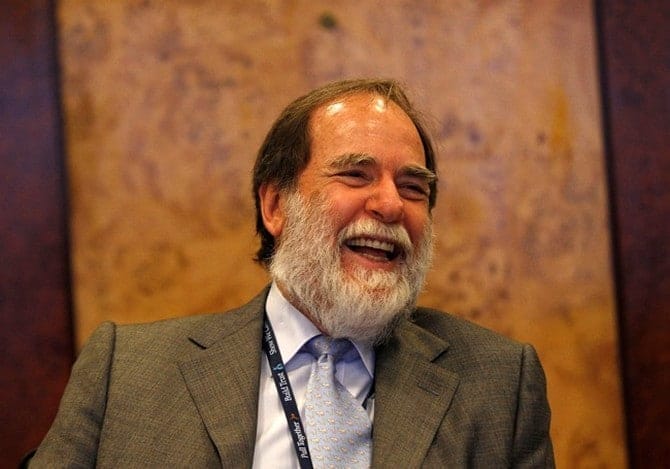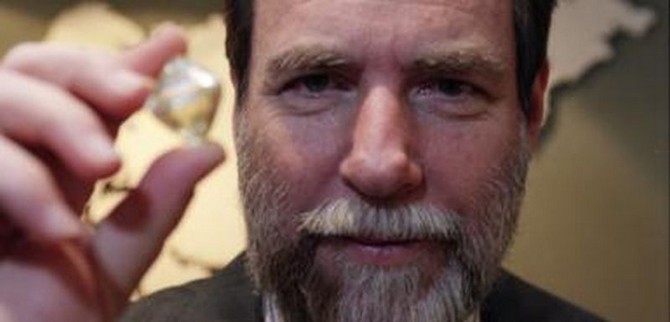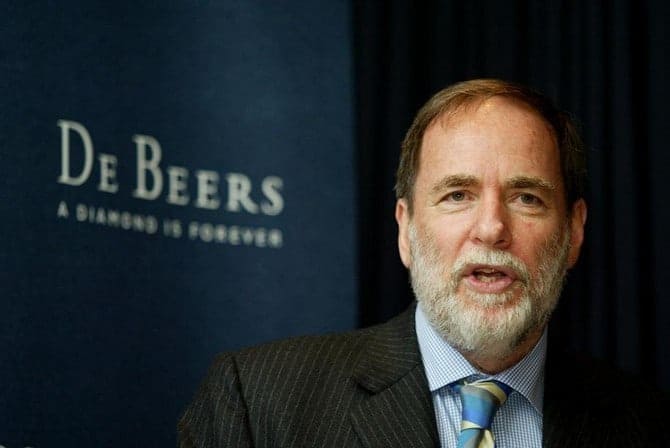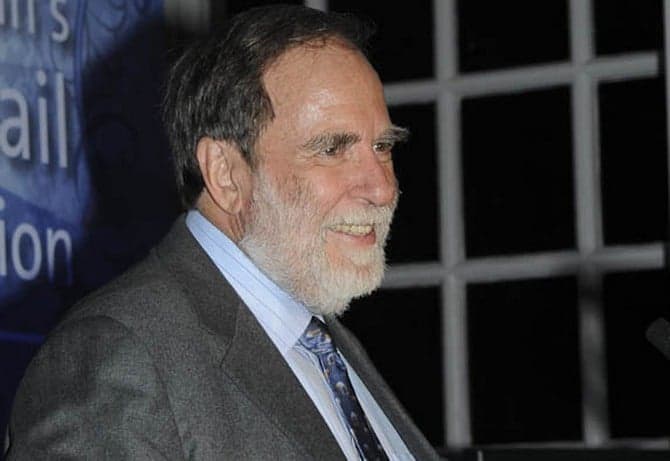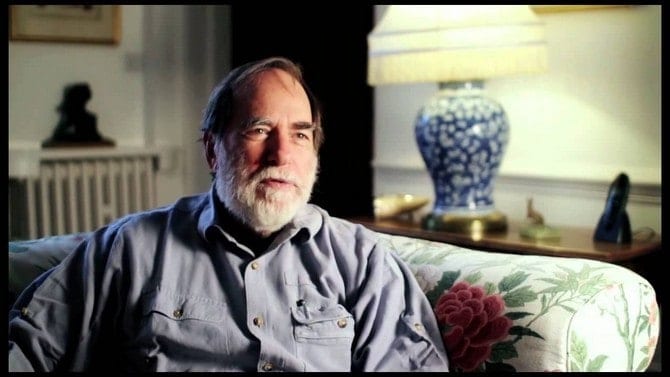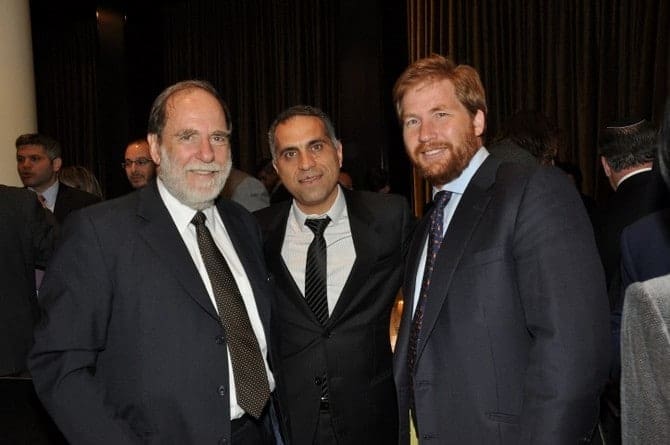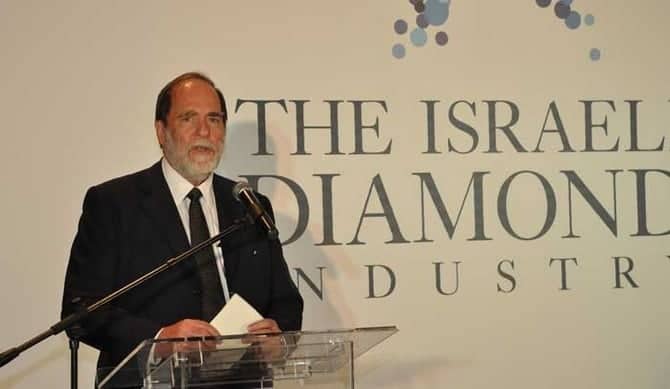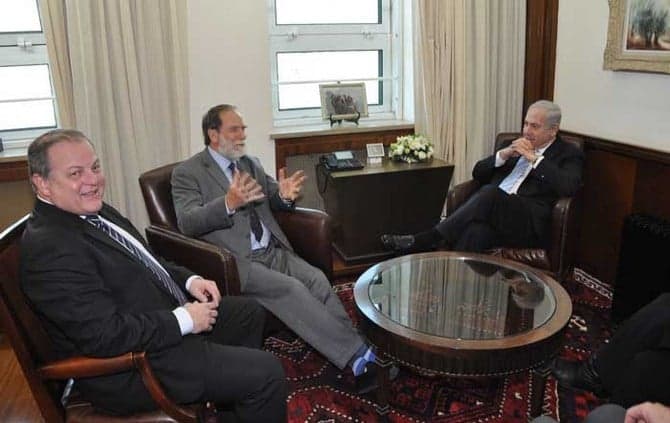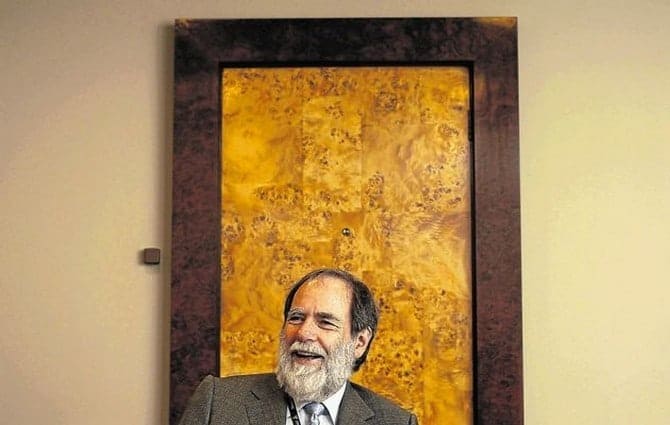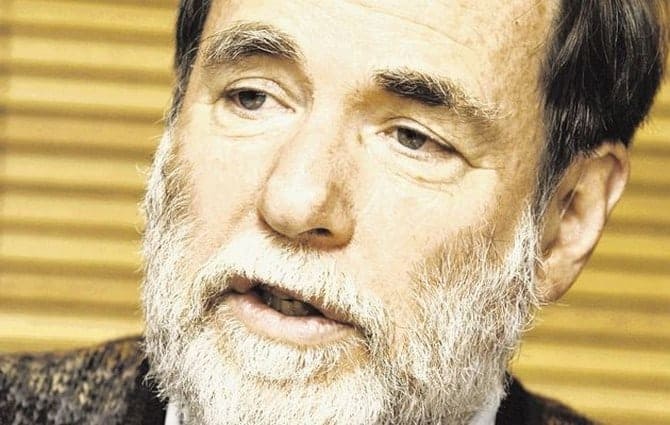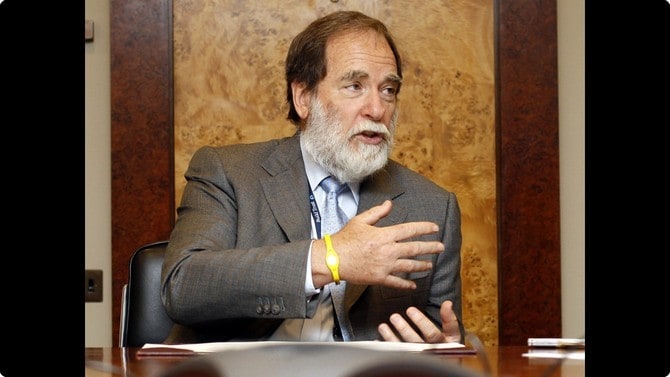Nicholas F. Oppenheimer was born on the 8th of June 1945 in Johannesburg, South Africa as the son of Bridget and Harry who had a long legacy of miners. The grandfather created the Anglo American mining company in 1917 at the largest gold field in the world, the Witwatersrand close to Johannesburg.
They didn’t settle with their work in the mine and in 1929 they also took control of the De Beers Company, transforming it into the largest diamond business in the world. The two companies were connected via cross-shareholdings and transformed into a multinational company with the headquarters in London and the producer of no less than 40% of the platinum in the world. When the grandfather was too old he passed the reigns to his son who was appointed chairman in 1957.
Nicholas was staying in England during his school years, studying at the Harrow School and Christ Church in Oxford after which he graduated with a Master of Arts degree, specializing in Philosophy, Politics and Economics as an interdisciplinary option. He remembers that his first job was as a bottle washer for the gold division of Anglo American but this is quite hard to believe.
He married Orcillia Strilli Lasch in 1968, the daughter of the industrial tycool Helli Lasch and together they have a son, Jonathan Oppenheimer who helped continue the family legacy of working in the mining company.
When his studies were over, Nicholas joined the company, being appointed as director in 1974 and through his hard work rose to become Deputy Chairman of Anglo American in 1983, a position he will hold until 2001.
In 1985 he was appointed Chairman of the Diamond Trading Company and only in 1998 did he become Chairman of the De Beers Group until 2012 when he retired after selling the family stake in the company to Anglo American.
Starting out as a personal assistant of the chairman at 23, Nicky became chairman and then started to change the business model of the company when it went through a rough patch during 2000 leading to it almost losing the edge it had on the diamond distribution market. In 2001 De Beers was delisted from the Johannesburg Stock Exchange
The diamond business was a very complicated one and a lot of bad media was going on about diamonds being traded through conflict zones. This created the concept of blood diamonds and Nicky sought a way of distancing the company from this idea. For this purpose the company joined the Kimberley Process certification scheme in 2003 that was trying to prevent conflict diamonds from getting on the market.
He received a Doctorate of Technology honoris causa in 2003 from the Technikon Witwatersrand and later on would also receive an Honorary Fellowship from the London Business School in 2009 for his contributions.
During the next years Nicholas used his connections and fortune to preserve the heritage of South Africa and to improve the community’s education, healthcare, arts and natural landscape. They created the Brenthurst Foundation in 2005 to contribute to the strategies and policies involving the economic performance of Africa as well as its sustainable development.
He said about himself “I am an African. I live there and my children live there and as far as I understand they intend to go on living there.”
He was always concerned about the very simplistic ideas that the Western world had about this continent: “many are growing increasingly weary of being seen merely as recipients of western largesse, especially largesse which expands dependence on the donor, or makes them hostage to the passions and prejudices of foreign NGOs.” He sees this charity as an addiction that doesn’t help the countries have a proper future.
“Because I am an African I reserve the right to say that Africa does not exist simply to make people of this country (meaning UK), or anywhere else in the developed world, feel good about themselves. […] In a continent of nearly 700 million people, 50 very different countries and hundreds of different languages, there are hundreds of different languages, there is another Africa, vibrant and full of potential that demands recognition.”
The family was concerned with the environment and involved in conservation so they partnered up with De Beers in 2006 to create what became the Diamond Route, a way in which their properties would be optimized for conservation and research. It connects eight sites throughout South Africa and wants to show “the good that diamonds do”.
Along with his son Jonathan, Nicholas has the largest private wilderness conservation in South Africa and it is used as a luxury private game reserve than can be visited. They have a country estate in the Berkshire county of England and the gardens here are open to visitors.
The family sold the stake they had in De Beers, amounting to 40%, to Anglo American for the sum of $5.2 billion in August 2012 and thus ended their diamond involvement. In an interview taken then, Oppenheimer stated that he plans to use the funds to invest in other fields like an Africa-focused private equity joint venture called Tana Africa Capital that was created together with Temasek Holdings.
He invested in 4Di Capital in 2012, although the exact figures are undisclosed and thus it is quite difficult to estimate the total net worth of the Oppenheimer family, but at the current time Forbes puts him at $6.7 billion, meaning he was surpassed by Johann Rupert for the title of the richest man in South Africa.
When he isn’t working Nicholas enjoys crime novels, flying his own helicopter or relaxing with his dogs, and despite vehemently calling himself an African he even enjoys playing cricket. He enjoys the pleasures of life and, giving up the worries for the De Beers Company allowed him to do this even better proving he is a practical man instead of someone seeking control.
“Diamonds are intrinsically worthless, except of the deep psychological need they fill” is what he used to say, and after reigning for 85 years in the industry the Oppenheimer family chose to orient their life toward other ways of improving the country they live in and love.

